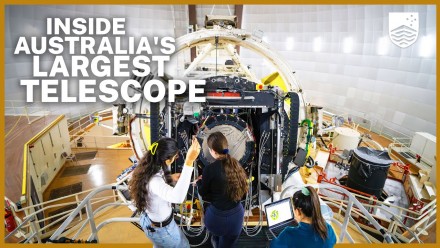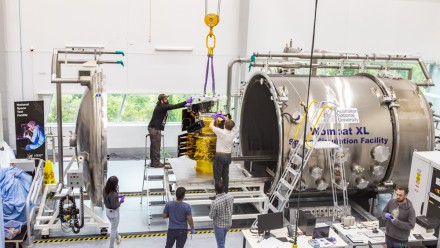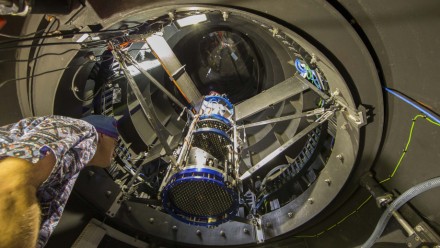Black hole phenomena
Black holes are among the most fascinating objects in astrophysics, and it is now thought that many of the most energetic processes in the universe are related, or attributable to, these enigmatic phenomena. Astrophysicists at RSAA study many aspects of the nature of black holes and the roles that they play in galaxies, including:
- supermassive black holes in galaxies and the formation of active galactic nuclei as material is accreted by the black hole
- feedback of mass and energy from the nucleus of galaxies as the black hole accretes matter, and how this affects the galaxies, their surroundings, and the way that they grow and develop
- radio galaxies and the nature of the relativistic jets that are formed in the active galactic nucleus
- constructing theoretical and computational models of accretion disks around black holes and jets and outflows associated with these phenomena
- making detailed observations of galaxies, to understand how the central black hole affects their structure and dynamics, and to measure the black hole mass.
- investigating the nature of the objects that produce highly energetic 'gamma ray bursts' in the distant universe.
Our theoretical astrophysicists develop and run sophisticated computational models to simulate the physical processes at work in these complex systems. They use powerful high-performance computing systems, including the Computational Astrophysics Laboratory (COALA) at RSAA, the ANU Supercomputer Facility (ANUSF), and other supercomputers in Australia.
Professional
-
Digital Communications Officer














